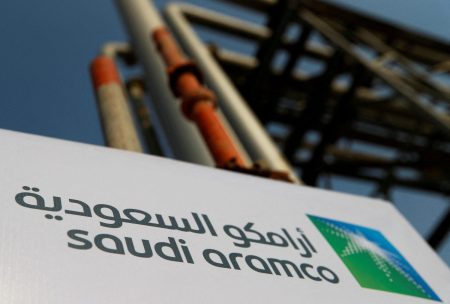 14 July 2014, Addis Ababa – Tullow Oil, , the British oil company that has been prospecting for oil in South Omo, recently drilled the fourth oil exploration well in South Omo named Gardim 1.
14 July 2014, Addis Ababa – Tullow Oil, , the British oil company that has been prospecting for oil in South Omo, recently drilled the fourth oil exploration well in South Omo named Gardim 1.
Reliable sources told The Reporter that the drilling crew of Tullow drilled Gardim 1 with Exalo 205 rig to a total depth of 1,900 meters and reached the bottom.
Sources said the drilling crew conducted well-testing on Gardim 1 two weeks ago adding that the well turned out dry. “They did not find oil in the well,” sources told The Reporter.
Well-testing is conducted by sucking air out of an exploration well and creating a vacuum in the well. Due to the pressure difference in the well (the pressure in the well will be lower than the surrounding area) and if there is oil and gas accumulation in the area it will flow to the well. Petroleum geologists call the flow “oil or gas inflow”.
If there is no oil and gas flow the well will be termed a dry well. Sadly, that is what happed at Gardim 1. Previously Tullow drilled three wells in South Omo and Chew Bahir.
The company noted some oil and gas show at the first well dubbed Sabisa1 drilled near Omorate town. Encouraged by the results of Sabisa 1 the company drilled the second well-Tultule 1 four km away from Sabisa 1. Tultule 1 was abandoned as a dry well.
The company then turned its face to Chew Bahir basin and drilled Shimela 1 well, which also turned out dry. Then the Exalo 250 rig was moved to Gardim 1 and supped the well in May.
Sources told The Reporter Tullow spent more than 155 million dollars on the four exploration wells drilled in southern Ethiopia. The company spent 65 million dollars only on Sabisa 1 well, the most difficult well to drill.
The drilling crew encountered well instability at Sabisa 1 and had difficulty to reach the targeted depth. Consequently, they were forced to stop drilling farther and started to drill horizontally. Sources told The Reporter that executives of Tullow decided to suspend drilling operation in Ethiopia.
“They will pull out their drilling crew out of Ethiopia. They will take out their core staff to other projects in other countries and lay off the rest of the staff in their Ethiopia office. They will only keep a skeleton office in Addis Ababa,” sources said.
Sources at Tullow Oil told The Reporter that executives of Tullow Oil last Friday called different contractors that have been contracted by Tullow for a meeting and thanked them for working with them so far.
After buying a 50 percent stake on the South Omo block from Africa Oil, a Canadian oil firm, in 2010 Tullow embarked on oil exploration work in South Omo.
Tullow contracted a Chinese firm that specializes in doing seismic survey, BGP Geoservices. BGP has a rich experience in undertaking seismic surveys in different countries, including Kenya and Uganda. BGP collected encouraging seismic data from South Omo and Chew Bahir basins.
Petroleum experts of Tullow analyzed the seismic data and selected four drilling locations based on the data. Seismic survey is conducted by sending waves to underground by using vibrator machines or explosives.
When the waves bounce back and reach the surface of the earth they will be collected by gadgets dubbed geophones. Seismic data is interpreted by geophysics. Seismic data helps to identify the underground structures.
Tullow has a successful exploration history in Ghana, Uganda and Kenya. The fact that Tullow discovered huge crude oil reserves in the Albert basin of Uganda, Turkana and Lokichar basins of Kenya raised the hope of industry experts for the discovery oil in Ethiopia.
As the South Omo and Chew Bahir basins were adjacent to the oil prone Turkana basin, many thought that Tullow Oil will strike oil in South Omo. Unfortunately, Tullow could not repeat its African success story in Ethiopia.
After drilling four wild-cat wells in South Omo and Chew Bahir the company decided to suspend drilling operations in Ethiopia.
Sisay Zerihun, senior corporate affairs advisor with Tullow Oil said that the company will soon issue a press release. Sisay did not confirm or deny the news.
However, he said Tullow will not go out. Communication directorate director with the Ministry of Mines, Bacha Fuji, said that he was unable to reply as he was on an extended meeting.
– The Reporter



